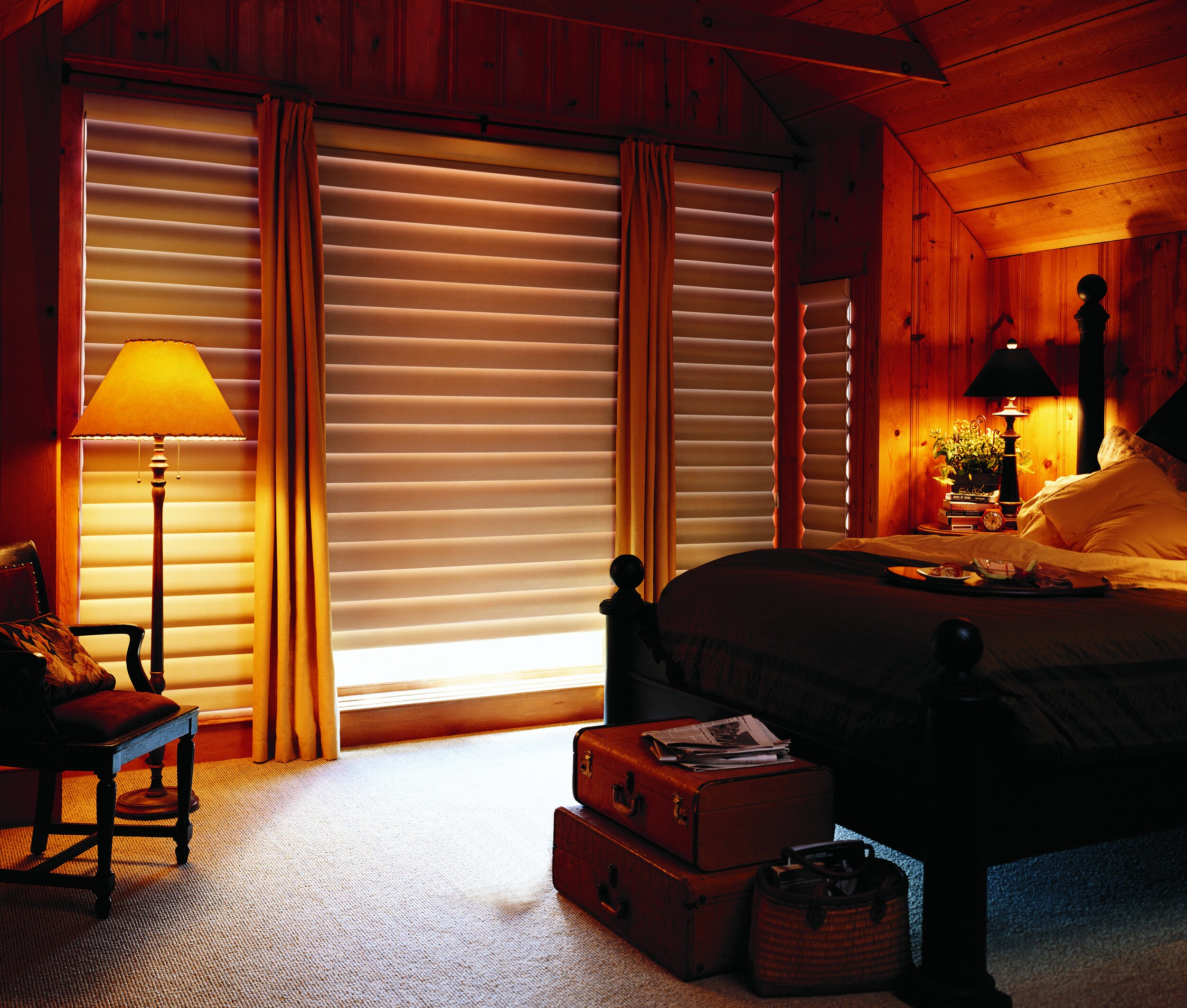There's been so much on the news lately about sleep-deprived America that the thoughts about covering up and sleeping are actually keeping me awake. Funny how lively our thoughts become in the middle of the night. . . Thoughts on how to prepare our beds, windows, walls, floors and ceilings to embrace that ever-elusive sleep. But, can we really design ourselves to sleep?
If you've followed along in our blog or Facebook page, you know that we always, without exception, recommend starting with the floors. Did I mention there is one exception to this rule? No? Well, we're making that exception now. When it comes to sleeping and practicalities, the best place to start is with the windows. Yes, the windows as in window coverings. Let's break that down: When was the last time you had the best sleep of your life? I ask this of my clients all the time and more often than not, it's when they're away from home, at a hotel, on vacation. Reality strikes! Blacking-out the lights of night are great for sleep.
Here's how we do it one step at a time.
The Foundation
The foundation to a true black-out setting starts with the shade and we've selected this photo to show that even with the best intentions of blocking out the light by installing a room-darkening shade, there are still light gaps that creep and crawl their way into your sleep. Ahhhh, so why not just extend the shade by installing it as an outside mount? Sounds right, but you'll still get light gaps as the shade will not be flush to the walls. Select the mount you choose, inside mount or outside mount, and move on to layering your design to capture the light.... just like your hotel room.
The Cover-Up
Success is gained by installing our shade as an outside mount, capturing the side light gaps with fully-lined drapery panels and the top light gaps with a cornice box in a style that embraces your decor theme. With this type of layering the foundation choice doesn't necessarily have to be room-darkening; the lining of the draperies will do the work just as well when closed.
What if I don’t like layers?
The newest operating system from Hunter Douglas’ Duette Honeycomb Shade + LightLock may be your answer.
Duette. Honeycomb. LightLock is the first of its kind to offer unparalleled darkness with light blocking side-channels. Click here to learn more.
Look Up
I don't know about you, but one thing I've discovered in my sleepless tirade is that a white ceiling seems brighter at night. Maybe it's just that we're staring at the ceiling waiting on the dreams to come. It's on those nights that I want to be in a cocoon, surrounded in relaxing color - just like our featured room. Carrying the wall color to the ceiling erases the starkness of that white ceiling and adds unexpected height to the room, add layers of softness with an area rug and upholstered headboard..... Now we're getting cozy!
Mom-somnia
Photo courtesy Hunter Douglas Duette Duolites, Black-out Roller Shades and PowerView App on Ipad.
Click here to learn more
Mom-somnia: If you've heard this term or know what it means, you have my sympathy!
You're fully aware that a good night's sleep only happens when your little ones sleep, and to that I say - all of the above applies. From "The Foundation" in our first paragraph to painting the ceiling a starry night; creating a call to sleep for the kiddos should be first on your list.
"Why", you may ask use black-out shades when the night light is on?
A couple of things come to mind, firstly, light-filtering shades allow shadows into the room from the outside world... headlights of passing cars... street lights.... that darn moon...
The same things that may wake us up have a tripled effect on the kids and their over-active imaginations. Installing kid-friendly black-out shades may just be your ticket to sleep.
Kick it up to the next level with PowerView motorization and you can set the shades to open when you want the kids to wake up.
Restful Nights. Happy Days.
With the right elements in place, you can foster an environment that promotes restful nights and happy days.
To help you create a relaxing sleep environment, we’ve contributed some expert tips in THE RENT GUIDE.
What do you think can we design our way to a better night's sleep?
We believe you will with the tips that we've shared.
You may just be a black-out shade away to peaceful slumbers.
Sweet Dreams








